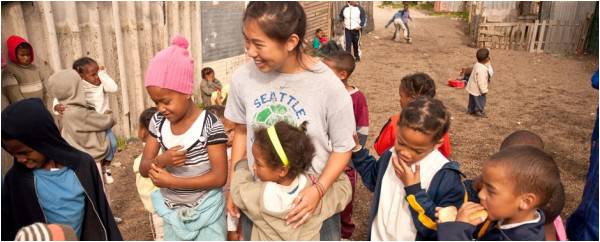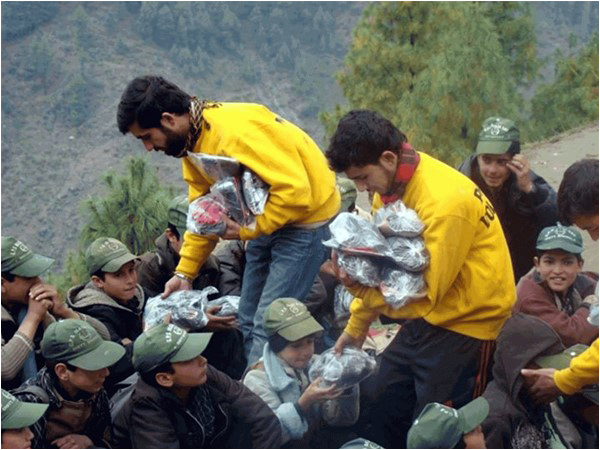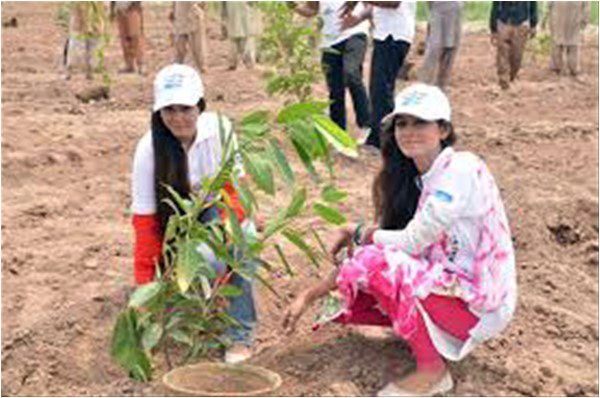
“Volunteering is the ultimate exercise in democracy. You vote in elections once a year, but when you volunteer, you vote everyday about the kind of community you want to live in.” — Unknown Author
Volunteers are defined by the International Labour Organisation (ILO) as “all those of working age who during a short reference period, performed any unpaid, non-compulsory activity to produce goods or provide services for others; that is for economic units outside the volunteer’s household or family.” They are considered an instrumental group in the non-profit sector for achieving sustainable development goals by the United Nations. Although the global figure is unavailable, UN Volunteers (UNV) alone reports that 6,796 individuals volunteered in 2017. Eager to join this amazing community, after finishing my education and my first full-time contract, I too decided to take a year off to volunteer.
Although the decision was warmheartedly supported by my family, I found that many friends and acquaintances questioned the logic of providing services for free over an extended period of time. Regardless, bright-eyed and bushy-tailed, off I went. That year took me to the Philippines to work on the construction of a village for a community of families living on the Umapad Dumpsite in Mandaue City. The next half of the year was spent in Uganda working with a charity in the slums of Kampala. I then tacked on an extra month on a farm in Egypt for good measure. Accommodation and flights were taken care of in all cases. However there was no earning for over a year. It is true that when I got home, I was tired and recovering from malaria. Friends were settling down, getting married and having children. It felt like a decade had gone by and in the eyes of many, I was still off playing – refusing to grow up. However I felt much richer with experience than I have ever before or since. I had been meeting people who I would have never met under normal circumstances. I had been learning about how they lived and struggled day to day, and it was a life-altering experience.
Apart from the families that we shared homes with on the dumpsite, the ones we worked with every day in the slums and the people working on the farm, I also met some amazing volunteers. One of the most important influences from that time, who remains one of my closest friends, is my hostel mate from Kampala. Brian Cranmer is an Irish volunteer who has to date spent 18 years volunteering in various countries in Africa, South America and Asia specialising in child safeguarding and protection. He is the only person that I met while travelling who can tell a story about machetes flashing in the Congo night sky, a dog following him around once when he wasn’t feeling well and street children in Kenya giving him a tearful farewell – all while calmly sitting on a porch in a slum in Kampala waiting to get to Sudan as the untrained hostel dog tried to kill us both with his show of affection. Living rough as we were with no gas and lighting fires for tea – those are still some of my fondest memories of young adulthood.

Recently while rehashing old times online with my friend, we got to talking about what compels people to volunteer long term, living in rough conditions and with no monetary gains. We spoke of the spirit of volunteerism, its importance for the individual, the community and how it can be sustained.
“It slowly became my life and who I am” says Brian. “I was giving my time and energy to help other people. It was never about ego or applause. It was a personal journey. A pilgrimage to the heart of humanity. It was like I had been living in an alternative universe all my life and I was finally standing with my feet on the ground of planet Earth”. Indeed many of the volunteers that I have met over the years have had the same positive spirit.
Aside from the reminiscing, one important point to come up during our conversation was the incredible need to professionalise volunteering. Being from a richer community or a Western country must not be treated as a qualification. There is great responsibility that comes with going into another community and trying to help. Too many volunteers go in with preconceived notions of what needs to be done without listening to the community. “Voluntourism”, an increasingly popular means to travel where tourists engage in volunteer work during vacations, while essentially a positive concept, can prove particularly problematic in this regard. Volunteers working with marginalised and vulnerable communities need to be properly recruited, trained, supervised, motivated and need to respect the fact that they are also in a process of learning. Volunteers also need support when ending their tenure. My friend describes an intense feeling of counter culture-shock which sent him into a spiral of confusion, detachment and torment upon his return from one of his earlier placements.

Additionally, despite noble intentions, finances are a practical aspect of life. After returning I had to spend some time chained behind a desk making sure I felt financially responsible again, restocking my savings account. Brian, belonging to a much more long-term commitment group, felt it more. “Of course there were times when I really struggled financially”, he quips good-naturedly. “I maxed out my credit cards three times in eight years, most recently in 2014 – at the ripe old age of 36! But money never mattered to me once I had seen the way the majority of people live. Money became nothing but a vehicle to get to the places and people I needed to be near – just like a car or an airplane”.
As with most things though, a balance is important. One has to feed every need in order to stay on a positive path. A yoga teacher and Ayurvedic healer who I once met told me that since he has been on his path, he only felt negativity once. He had been living in very poor conditions in London while giving lessons free of charge for a year. Then one day while passing by Harrods he saw a rich older couple come out with bags and bags of lavish purchases. That was the first time in years that he felt what he said he could only describe as jealousy. He started charging for his classes the next day. It was just a nominal amount, he said, but it was enough to keep him from being envious of others’ creature comforts. Brian is also now in a paid position training aspiring volunteers. “You need to look towards taking care of yourself too. I can’t volunteer anymore, not a chance, even though they were my happiest days”. He has no regrets whatsoever in the end. “I’m glad that I did it all voluntarily – it was never about money. Money destroys the humanity in everything.”
At the end of our conversation I had to agree. Whereas many of us may not exactly see eye-to-eye with this noble spirit, it is important to uncouple from what becomes our primary focus in life sometimes. A week or two a year can perhaps help disengage and rewire the individualistic way of thinking, something we are becoming more and more susceptible to. Our programmed concept of money or “doing well” in life shouldn’t be the only goal. In the end, as put by the great Muhammad Ali, “Service to others is the rent you pay for your room here on Earth.”
Volunteers are defined by the International Labour Organisation (ILO) as “all those of working age who during a short reference period, performed any unpaid, non-compulsory activity to produce goods or provide services for others; that is for economic units outside the volunteer’s household or family.” They are considered an instrumental group in the non-profit sector for achieving sustainable development goals by the United Nations. Although the global figure is unavailable, UN Volunteers (UNV) alone reports that 6,796 individuals volunteered in 2017. Eager to join this amazing community, after finishing my education and my first full-time contract, I too decided to take a year off to volunteer.
Although the decision was warmheartedly supported by my family, I found that many friends and acquaintances questioned the logic of providing services for free over an extended period of time. Regardless, bright-eyed and bushy-tailed, off I went. That year took me to the Philippines to work on the construction of a village for a community of families living on the Umapad Dumpsite in Mandaue City. The next half of the year was spent in Uganda working with a charity in the slums of Kampala. I then tacked on an extra month on a farm in Egypt for good measure. Accommodation and flights were taken care of in all cases. However there was no earning for over a year. It is true that when I got home, I was tired and recovering from malaria. Friends were settling down, getting married and having children. It felt like a decade had gone by and in the eyes of many, I was still off playing – refusing to grow up. However I felt much richer with experience than I have ever before or since. I had been meeting people who I would have never met under normal circumstances. I had been learning about how they lived and struggled day to day, and it was a life-altering experience.
Too many volunteers go in with preconceived notions of what needs to be done without listening to the community
Apart from the families that we shared homes with on the dumpsite, the ones we worked with every day in the slums and the people working on the farm, I also met some amazing volunteers. One of the most important influences from that time, who remains one of my closest friends, is my hostel mate from Kampala. Brian Cranmer is an Irish volunteer who has to date spent 18 years volunteering in various countries in Africa, South America and Asia specialising in child safeguarding and protection. He is the only person that I met while travelling who can tell a story about machetes flashing in the Congo night sky, a dog following him around once when he wasn’t feeling well and street children in Kenya giving him a tearful farewell – all while calmly sitting on a porch in a slum in Kampala waiting to get to Sudan as the untrained hostel dog tried to kill us both with his show of affection. Living rough as we were with no gas and lighting fires for tea – those are still some of my fondest memories of young adulthood.

Recently while rehashing old times online with my friend, we got to talking about what compels people to volunteer long term, living in rough conditions and with no monetary gains. We spoke of the spirit of volunteerism, its importance for the individual, the community and how it can be sustained.
“It slowly became my life and who I am” says Brian. “I was giving my time and energy to help other people. It was never about ego or applause. It was a personal journey. A pilgrimage to the heart of humanity. It was like I had been living in an alternative universe all my life and I was finally standing with my feet on the ground of planet Earth”. Indeed many of the volunteers that I have met over the years have had the same positive spirit.
Aside from the reminiscing, one important point to come up during our conversation was the incredible need to professionalise volunteering. Being from a richer community or a Western country must not be treated as a qualification. There is great responsibility that comes with going into another community and trying to help. Too many volunteers go in with preconceived notions of what needs to be done without listening to the community. “Voluntourism”, an increasingly popular means to travel where tourists engage in volunteer work during vacations, while essentially a positive concept, can prove particularly problematic in this regard. Volunteers working with marginalised and vulnerable communities need to be properly recruited, trained, supervised, motivated and need to respect the fact that they are also in a process of learning. Volunteers also need support when ending their tenure. My friend describes an intense feeling of counter culture-shock which sent him into a spiral of confusion, detachment and torment upon his return from one of his earlier placements.

Additionally, despite noble intentions, finances are a practical aspect of life. After returning I had to spend some time chained behind a desk making sure I felt financially responsible again, restocking my savings account. Brian, belonging to a much more long-term commitment group, felt it more. “Of course there were times when I really struggled financially”, he quips good-naturedly. “I maxed out my credit cards three times in eight years, most recently in 2014 – at the ripe old age of 36! But money never mattered to me once I had seen the way the majority of people live. Money became nothing but a vehicle to get to the places and people I needed to be near – just like a car or an airplane”.
As with most things though, a balance is important. One has to feed every need in order to stay on a positive path. A yoga teacher and Ayurvedic healer who I once met told me that since he has been on his path, he only felt negativity once. He had been living in very poor conditions in London while giving lessons free of charge for a year. Then one day while passing by Harrods he saw a rich older couple come out with bags and bags of lavish purchases. That was the first time in years that he felt what he said he could only describe as jealousy. He started charging for his classes the next day. It was just a nominal amount, he said, but it was enough to keep him from being envious of others’ creature comforts. Brian is also now in a paid position training aspiring volunteers. “You need to look towards taking care of yourself too. I can’t volunteer anymore, not a chance, even though they were my happiest days”. He has no regrets whatsoever in the end. “I’m glad that I did it all voluntarily – it was never about money. Money destroys the humanity in everything.”
At the end of our conversation I had to agree. Whereas many of us may not exactly see eye-to-eye with this noble spirit, it is important to uncouple from what becomes our primary focus in life sometimes. A week or two a year can perhaps help disengage and rewire the individualistic way of thinking, something we are becoming more and more susceptible to. Our programmed concept of money or “doing well” in life shouldn’t be the only goal. In the end, as put by the great Muhammad Ali, “Service to others is the rent you pay for your room here on Earth.”

